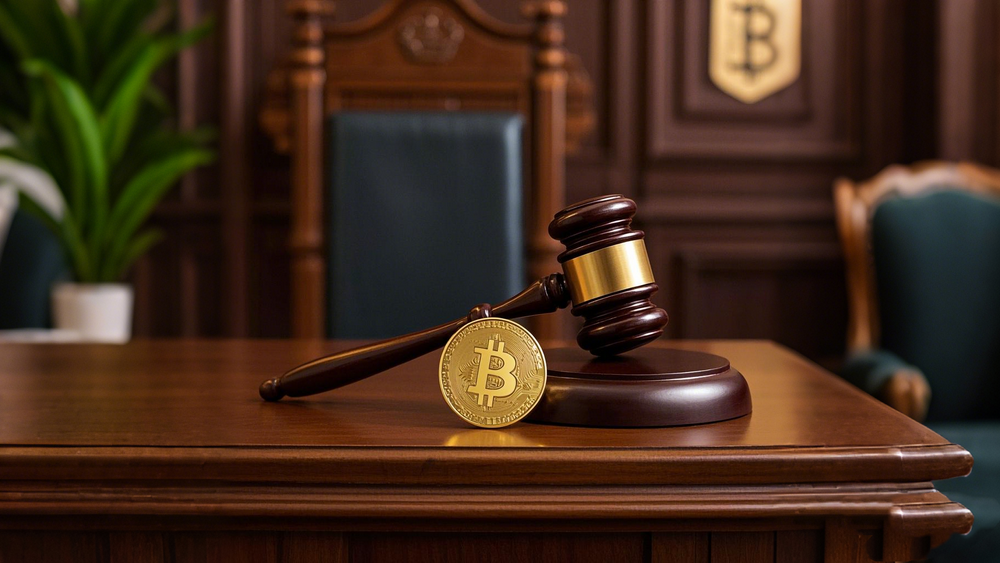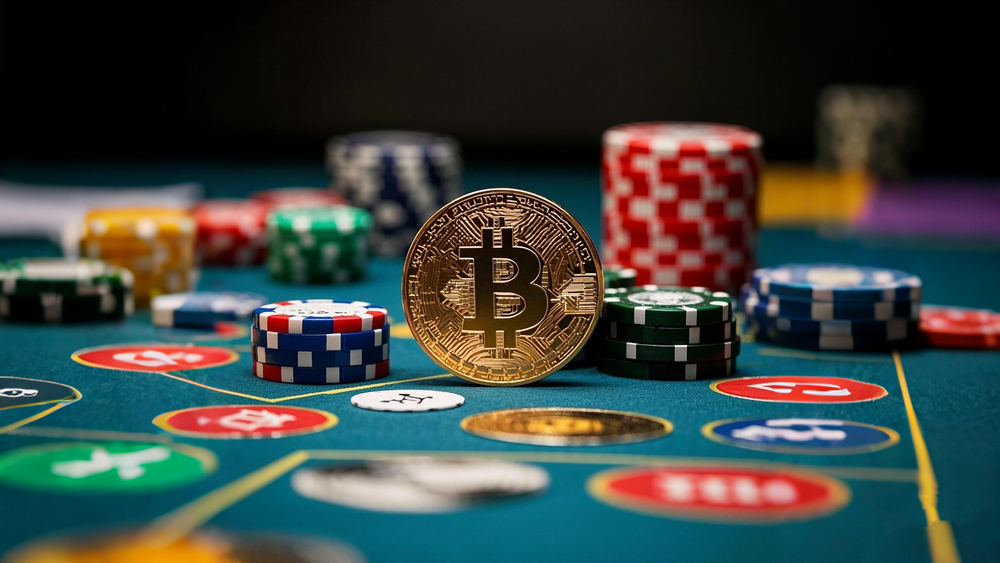Recently, the Pingjiang Court in Hunan Province (hereinafter referred to as "Pingjiang Court") publicly released eight criminal judgments related to BKEX (Bikex) virtual currency exchange, attracting the attention of friends in the cryptocurrency community. The main reason is that judicial authorities have classified the contract trading of virtual currency exchanges as gambling, thereby categorizing virtual currency exchanges as casinos. Consequently, the relevant owners and employees are suspected of operating a casino crime.
Is the legal basis for such a determination sufficient? What are the points of contention? As a web3 lawyer, Lawyer Liu has written a brief analysis today.

I. Case Background
The Pingjiang Court determined that around July 2017, Ji Mouming and others collaborated to develop contract trading functions through the BKEX exchange. Users can recharge using Tether (USDT) after installing the "BKEX" app or logging into its official website, and then buy contracts for mainstream coins like BTC and ETH.
Users can "go long (bullish)" or "go short (bearish)" through ordinary perpetual contracts (up to 100 times leverage) or crazy contracts (125 times to 1000 times leverage). Additionally, the "BKEX" exchange provides market reference data, forced liquidation, matching transactions, platform gambling transactions, and agent commission return functions.
The "court findings" section shows that the business team formed by Lei Mou developed a multi-level agency and user system, directly or indirectly developing over 10,000 lower-level agents. By the time of the incident, the "BKEX" platform had over 270,000 contract trading users, with more than 60,000 active users. The platform accumulated a net profit of 54,797,677 USDT (approximately over 300 million RMB) through transaction fees during user withdrawals and betting processes, as well as profits from forced liquidation and gambling.
The court's judgment does not provide more detailed case specifics. It is currently confirmed that the main offenders in this case are Ji Mouming and Lei Mou, with Ji Mouming likely already abroad; Lei is being prosecuted in another case, and the judgment may not yet be effective or has not been ruled.
The eight publicly released judgments involve only grassroots employees or agents of the "BKEX" exchange, with none of the sentences exceeding five years.
II. What is the Crime of Operating a Casino?
To understand the crime of operating a casino, one must first know what constitutes gambling.
Regarding the definition of gambling, there is no explanation in China's Criminal Law; generally, it is understood as "the act of gambling or betting with property based on random wins and losses" (Zhang Mingkai). However, not all gambling is prohibited by law; only two types are not allowed: one is gathering multiple people to gamble; the other is making a profession out of gambling (full-time or part-time). There are detailed regulations in relevant judicial interpretations in China, which Lawyer Liu will not elaborate on.
The crime of operating a casino refers to providing a venue or space for others to gamble and controlling or managing the casino. This is stipulated in Article 303, Paragraph 2 of China's Criminal Law. As online crime has increasingly become a significant part of traditional crime, the "Two Highs and One Ministry" issued the "Opinions on Several Issues Concerning the Application of Law in Handling Online Gambling Crimes" in 2010, defining situations such as "establishing gambling websites and accepting bets," "establishing gambling websites and providing them for others to organize gambling," and "acting as an agent for gambling websites and accepting bets" as criminal acts of "operating a casino," thus constituting the crime of operating a casino.
The punishment for the crime of operating a casino is divided into two categories: general circumstances carry a sentence of less than five years of fixed-term imprisonment, criminal detention, or control; serious circumstances carry a sentence of more than five years of fixed-term imprisonment; both categories also incur fines.

III. Is Contract Trading Gambling?
Returning to the topic of concern for friends in the cryptocurrency community. Most people trading cryptocurrencies harbor dreams of getting rich overnight; buying spot assets certainly cannot fulfill this dream (unless the market performs exceptionally well); most still hope to get rich through contract trading.
In the "crazy contract" of the "BKEX" exchange, there are contract options with up to 1000 times leverage. If one bets correctly, they can indeed become a "5U War God"; but returning to reality, does this type of trading comply with legal regulations?
Unfortunately, according to current Chinese law, this type of trading can indeed be classified as gambling.
According to the Supreme People's Court's Guiding Case No. 146 (December 2020) — the case of Chen Qinghao and others operating a casino, the court's ruling viewpoint is: outside of legally designated futures exchanges, using the internet to solicit investors based on the price trends of foreign exchange varieties over a future period, determining profits and losses based on "buying up" or "buying down," where investors who bet correctly profit and those who bet incorrectly lose their principal to the house; if the profit and loss results are not linked to the actual price fluctuations, it is essentially still a gambling behavior of "betting on size and winning or losing." Corresponding websites should be recognized as gambling websites.
In the contract trading of virtual currency exchanges, the combination of virtual currency + high leverage + perpetual contracts… this series of high-risk behaviors is naturally unlikely to win favor in the eyes of judicial authorities, which already hold a largely negative view of virtual currency, especially in a judicial environment dominated by a mindset of criminalization. Currently, operating a virtual currency exchange in mainland China will inevitably involve criminal liability.
For friends who frequently engage in contract trading, especially if you are doing it full-time or part-time and your primary source of income is from contract trading, you may indeed be suspected of gambling crimes. However, due to practical factors, such as virtual currency exchanges being established overseas, the difficulty for judicial authorities to investigate and gather evidence; the strong anonymity of trading virtual currencies and their weak connection to the real world; and the weak regulation of ordinary investors in virtual currencies by the state, there are currently very few real legal risks for those trading cryptocurrencies. The main risk currently lies in being frozen when buying and selling USDT.
IV. Conclusion
Since the release of the "9.24 Notice" in 2021, owners of virtual currency exchanges in mainland China have either gone overseas or changed careers; those who insist on operating domestically face the fate of criminal prosecution. In the past two years, among the cryptocurrency-related cases handled by Lawyer Liu, the most common situations involve being charged with operating a casino crime or pyramid scheme for establishing virtual currency exchanges. Whether it is CZ or Brother Sun, if they return to mainland China, they are likely to face criminal accountability.
However, it seems that since the development of virtual currencies represented by Bitcoin since 2009, it is impossible to make them completely disappear. Chinese regulators should consider how to properly accept virtual currencies, but this also seems impossible, as any form of acceptance would lead to a shock to sovereign currencies and the financial order, which is unacceptable to some. The future remains unclear, at least for now.
免责声明:本文章仅代表作者个人观点,不代表本平台的立场和观点。本文章仅供信息分享,不构成对任何人的任何投资建议。用户与作者之间的任何争议,与本平台无关。如网页中刊载的文章或图片涉及侵权,请提供相关的权利证明和身份证明发送邮件到support@aicoin.com,本平台相关工作人员将会进行核查。




